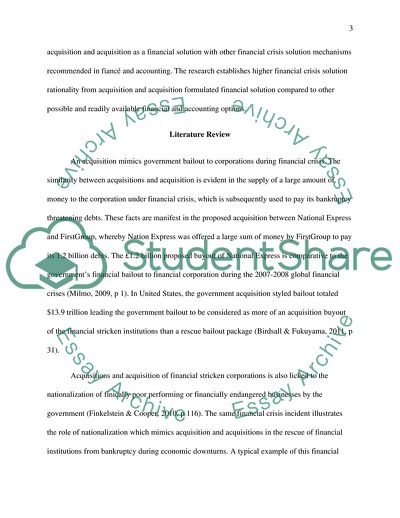Cite this document
(National Express rejects takeover bid from First Group (Financial Research Proposal - 1, n.d.)
National Express rejects takeover bid from First Group (Financial Research Proposal - 1. https://studentshare.org/finance-accounting/1789264-national-express-rejects-takeover-bid-from-first-group-financial-times-29-june-2009
National Express rejects takeover bid from First Group (Financial Research Proposal - 1. https://studentshare.org/finance-accounting/1789264-national-express-rejects-takeover-bid-from-first-group-financial-times-29-june-2009
(National Express Rejects Takeover Bid from First Group (Financial Research Proposal - 1)
National Express Rejects Takeover Bid from First Group (Financial Research Proposal - 1. https://studentshare.org/finance-accounting/1789264-national-express-rejects-takeover-bid-from-first-group-financial-times-29-june-2009.
National Express Rejects Takeover Bid from First Group (Financial Research Proposal - 1. https://studentshare.org/finance-accounting/1789264-national-express-rejects-takeover-bid-from-first-group-financial-times-29-june-2009.
“National Express Rejects Takeover Bid from First Group (Financial Research Proposal - 1”. https://studentshare.org/finance-accounting/1789264-national-express-rejects-takeover-bid-from-first-group-financial-times-29-june-2009.


